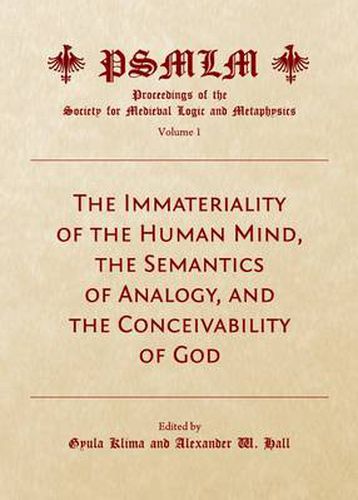The Immateriality of the Human Mind, the Semantics of Analogy, and the Conceivability of God (Volume 1: Proceedings of the Society for Medieval Logic and Metaphysics)

The Immateriality of the Human Mind, the Semantics of Analogy, and the Conceivability of God (Volume 1: Proceedings of the Society for Medieval Logic and Metaphysics)
The Immateriality of the Human Mind, the Semantics of Analogy, and the Conceivability of God brings together the work of experts in the field of medieval philosophy to consider the nature of God and the soul, what can be known of the divine essence and the semantics of theological discourse from the perspectives of medieval theology (both natural and revealed), logic and natural philosophy. In his capacity as an arts master commenting on a work of natural philosophy, Aristotle’s De Anima, John Buridan discusses the immateriality of the intellect against the background of the competing, mutually exclusive views of Alexander of Aphrodisias and Averroes. Aquinas takes up the same issue, but in a more properly theological setting, in his Commentary on the Sentences of Peter Lombard, where Aquinas argues that the being of the intellect is independent of matter. Thomas de Vio Cajetan considers the semantics of theological discourse or ‘God talk’ in order to derive a proper means to speak of the divine essence in his De Nominum Analogia; and Anselm of Canterbury’s Proslogion seeks with unaided reason to develop a single proof whereby those who think seriously of anything as ‘that than which nothing greater can be thought’ may know that God exists.
This item is not currently in-stock. It can be ordered online and is expected to ship in approx 4 weeks
Our stock data is updated periodically, and availability may change throughout the day for in-demand items. Please call the relevant shop for the most current stock information. Prices are subject to change without notice.
Sign in or become a Readings Member to add this title to a wishlist.


